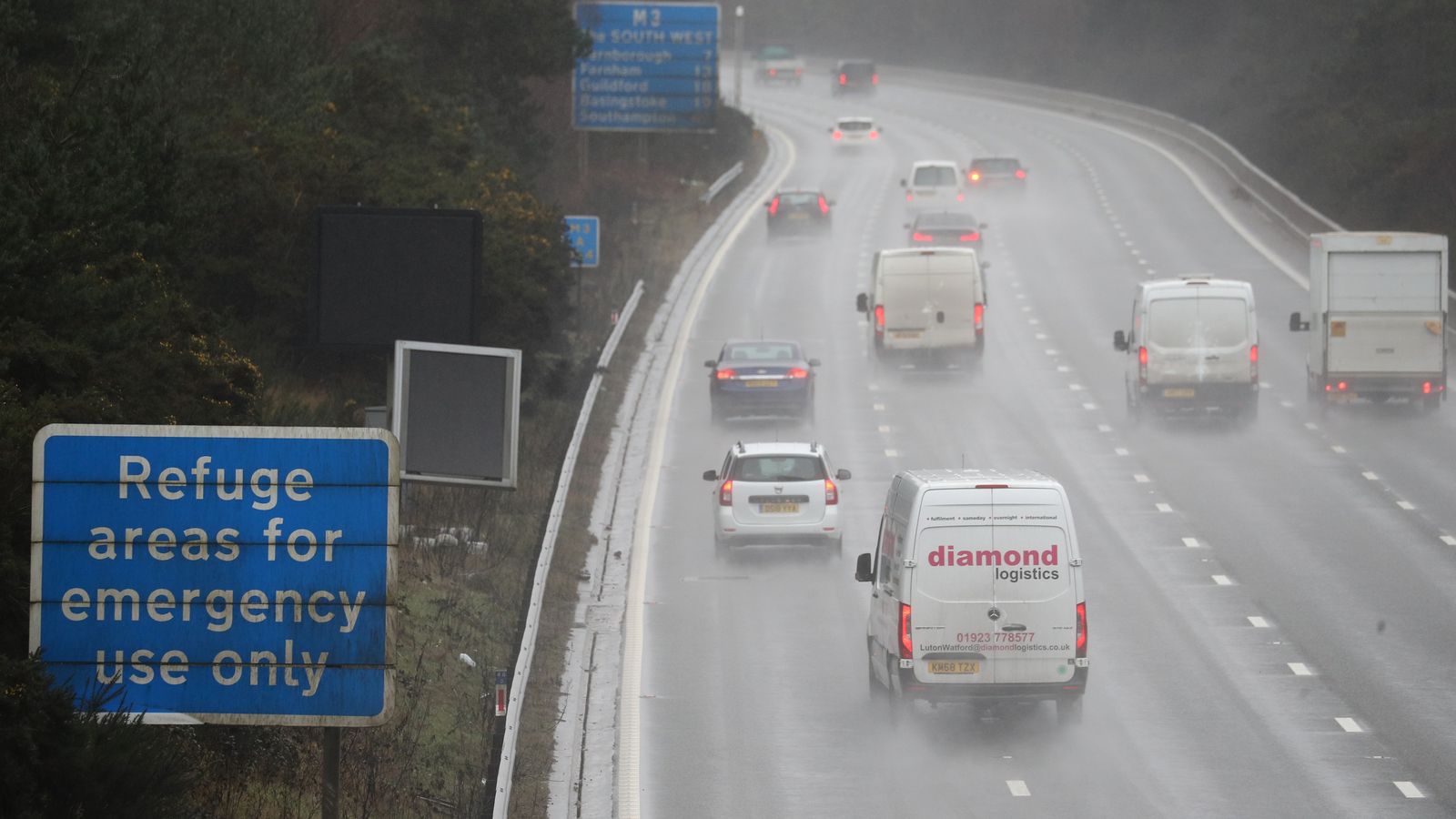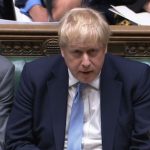An investigation has been launched at Westminster into smart motorways in response to growing safety concerns.
The inquiry by the Commons’ Transport Select Committee will also examine the impact of the controversial traffic management system on tackling congestion.
Smart motorways involve using the hard shoulder of the multi-lane carriageway for vehicles to increase capacity.
However, worries have been mounting over the danger they pose.
Earlier this month, a coroner investigating the death of 62-year-old grandmother Nargis Begum on a section of smart motorway on the M1 in South Yorkshire, referred Highways England to the Crown Prosecution Service (CPS) to consider if corporate manslaughter charges were appropriate.
And last month, a Sheffield coroner ruled that smart motorways “present an ongoing risk of future deaths”.
David Urpeth said the primary cause of death of Jason Mercer, 44, and Alexandru Murgeanu, 22, on the M1 in South Yorkshire in June 2019 was the careless driving of lorry driver Prezemyslaw Szuba, who ploughed into their vehicles as they stood stationary in lane one following a minor shunt.
But recording a conclusion of unlawful killing, Mr Urpeth said: “I find, as a finding of fact, it is clear a lack of hard shoulder contributed to this tragedy.”
It has led South Yorkshire police and crime commissioner (PCC) Dr Alan Billings to call for the smart motorway on the M1 to be scrapped, branding it “inherently dangerous”.
Transport Secretary Grant Shapps told the select committee earlier this month that he “inherited” smart motorways, and vowed to “get rid of confusions”.
These included “insane” dynamic hard shoulders, which switch between being used for emergencies and live traffic depending on demand.
He has published a smart motorways 18-point action plan aimed at improving safety.
Tory MP Huw Merriman, who chairs the committee, said: “The Department for Transport says smart motorways help us cope with a 23% rise in traffic since 2000, helping congestion.
“The department’s own stocktake report points to lower fatal casualty rates for smart motorways without a permanent hard shoulder than on motorways with a hard shoulder. The serious casualty rate is slightly higher.
“This message isn’t reaching the public, whose confidence in smart motorways has been dented by increasing fatalities on these roads.
“Road safety charities are also expressing concerns. Will enhanced safety measures help? Will the public accept them following an awareness campaign? Or should there be a rethink of government policy?
“There are genuine worries about this element of the motorway network and we want to investigate how we got to this point.”
Labour’s shadow transport secretary Jim McMahon said: “Dozens of people have lost their lives on smart motorways, so this investigation is welcome.”
A Department for Transport spokeswoman said: “Since taking office, the current secretary of state has expressed his concerns over smart motorways and has committed £500m to safety improvements.
“We welcome this important inquiry from the transport committee and we will provide written evidence to help it in its work.”






















